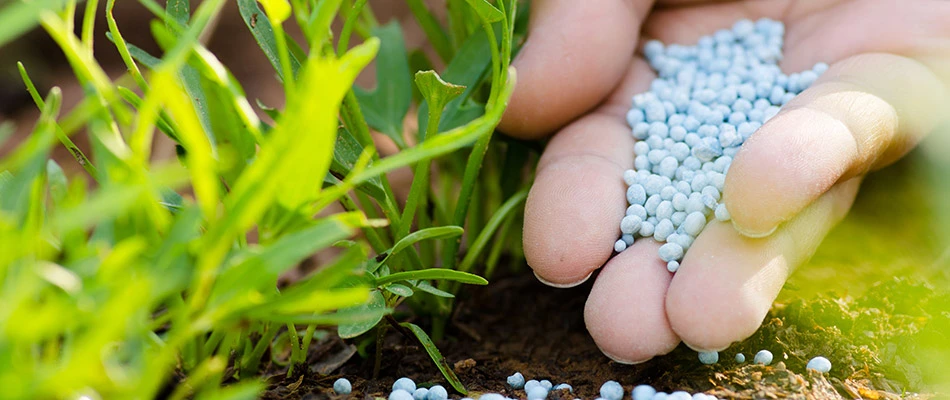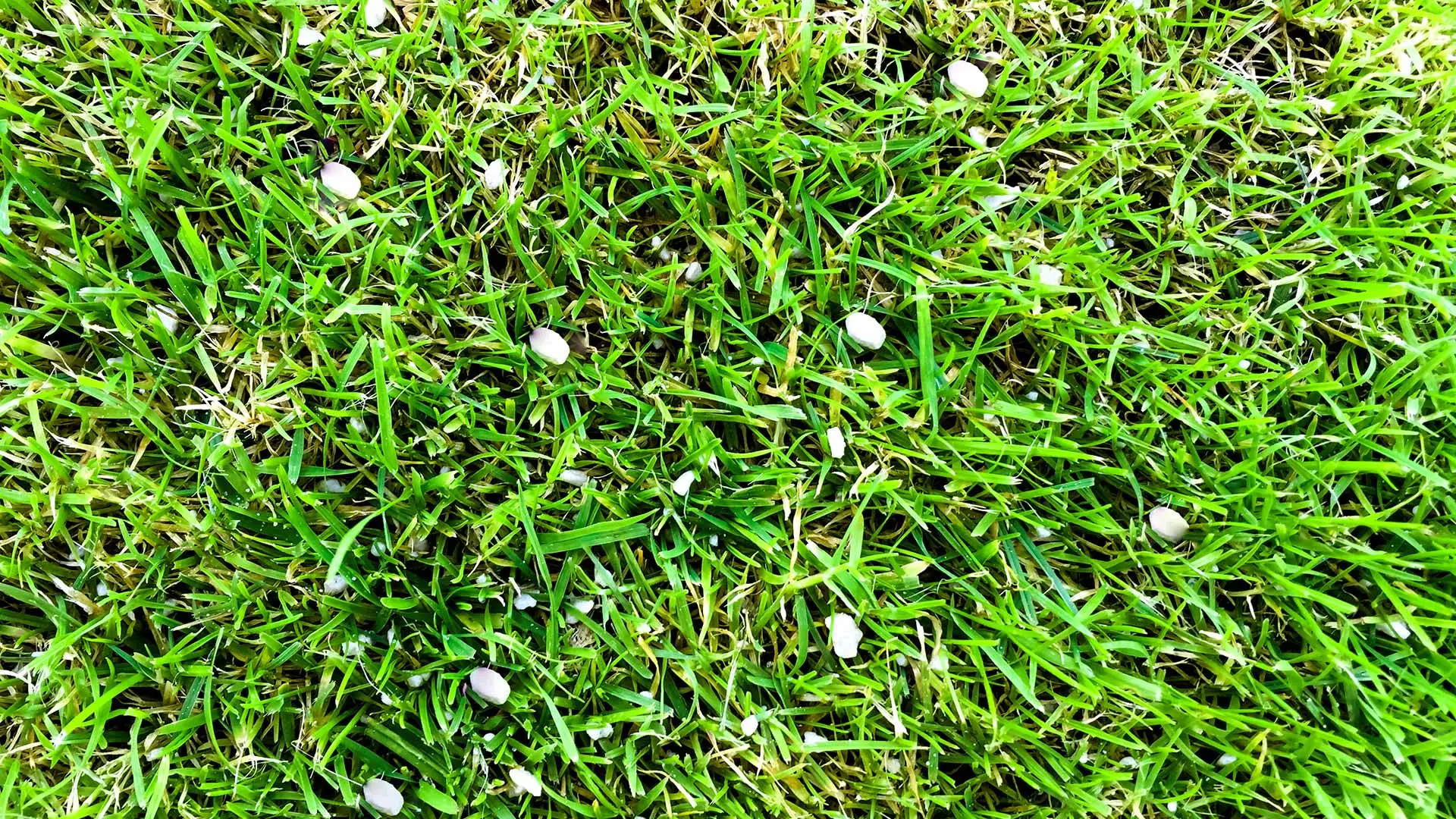You’ve spent time and money to get your lawn looking green, thick, and healthy. Now, you just need to care for it. So, you go to your nearest gardening center and buy a few bags of Scott's "weed and feed." What could go wrong?
Unfortunately, a lot can go wrong with a do-it-yourself fertilizing project. There are many factors to consider before fertilizing your grass, including the time of year, the type of turf, the proper fertilizer formula, and the correct amount to apply to your lawn. Making a miscalculation in fertilizing can temporarily or permanently damage your grass.

Being located in northern Georgia, we're experts in creating and executing lawn care treatment plans for both cool-season and warm-season turf as our clients are located in areas such as Woodstock, Roswell, and Alpharetta, GA. In this article, we'll share some common things that can go wrong in DIY fertilizing, regardless of your location.
1. Choosing the Wrong Fertilizer for Your Grass
Just as there are numerous grass types, there are also different fertilizer formulas to provide the proper nutrients for various turf strains. Using the wrong fertilizer for your grass could actually promote insects and disease while damaging the root system. Lawns require the correct balance of nitrogen, phosphorus, and potassium (NPK), along with moisture, to remain healthy. Although most fertilizers have NPK, levels vary depending on the needs of your specific grass type. Nitrogen typically is the most important nutrient, but overfertilizing with this element can damage your grass's root systems and cause fertilizer burn.
Fertilizers can deliver NPK to the soil either immediately or gradually over several weeks and months. Most lawns benefit from controlled-release fertilizers, but there are times when it’s better to use something faster. The difference comes down to the time of year, whether your lawn has a nutrient deficiency, or you need to maintain its current health over an extended period of time.
- Quick-release fertilizer delivers nutrients to your soil immediately to promote rapid greening (usually liquid form).
- Slow-release fertilizer delivers nutrients over a period of time for steady, uniform growth (usually in granular form).
2. Applying Fertilizer at the Wrong Time
Seasonal factors also impact the effectiveness of fertilizer treatments. If you treat your grass too early in the year, you're encouraging plant growth long before temperatures are warm enough for your grass to survive. Fertilizing too late into the fall season can prevent grass from remaining healthy throughout its dormant period, which is when your grass is constantly using its energy to strengthen its roots and store essential nutrients.
In general, it’s best to fertilize your lawn when the weather warms up and your grass has officially emerged from its winter dormancy. Here in Northern Georgia, some grasses—like fescue–never go dormant and should also be fertilized in the fall. Determining whether your grass is cool-season or warm-season is imperative. That's why it's best to turn to the professionals, as they are trained in this area of lawn care.
3. Using Too Much or Too Little Fertilizer
One of the most common errors for DIY landscapers is spreading too much or too little fertilizer. If you overfeed your lawn, you can damage its roots, making it vulnerable to pests and disease. Overfertilizing also can damage the environment by leaching into the local groundwater supply.
Spreading too little fertilizer is a waste of time and money. If you don’t feed your lawn the correct level of nutrients, it won’t thrive. It also will give weeds like crabgrass and nutsedge an opportunity to take over your landscape.
Call (833) 444-8873 for professional fertilization services in Woodstock, Roswell, Alpharetta, and other nearby areas of GA.
Let the pros at TurfXpert keep your landscape well-fed and healthy. We’ve been keeping lawns in Woodstock, Roswell, and Alpharetta lush and beautiful since 2007. Request a quote online or call us at (833) 444-8873 for more information about our fertilization program.




Comments (0)
Thanks for your comment!
Thanks for your feedback! Your comments have been successfully submitted! Please note, all comments require admin approval prior to display.
Error submitting comment!
There is a problem with your comment, please see below and try again.